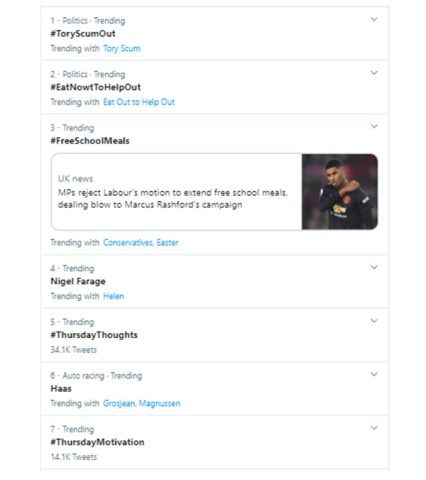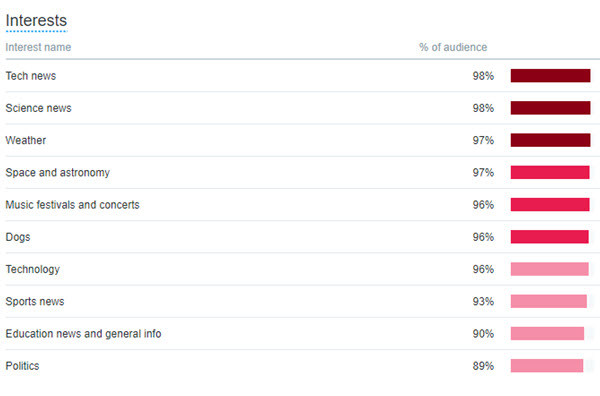How to Use Viral Marketing to Make Your Blog Viral
By Dorothea Oppelland
January 10, 2024 • Fact checked by Dumb Little Man

You probably know that a lot of examples of viral content comes from social media. One of them is this world-famous tweet by Ellen DeGeneres:

This photo got so famous that it was revamped by many mainstream media outlets. Even the creators of The Simpsons made their own version of this tweet:

From these two examples, it’s easy to see why social media content has more viral potential. Social media platforms have the necessary tools to share and spread information, which sometimes helps content go viral even within a few hours.
But what about blogs? Does blog content have viral potential?
Let’s try to answer this question with an example.
You’ve probably heard about BuzzFeed – one of the biggest internet media companies. Its website is essentially a big blog broken down into multiple topics, including politics and entertainment.
If we take a look at the performance of the articles on the BuzzFeed website, we’ll see that most of them have absolutely great engagement rates, although most of them are simply blog posts:

So, how do blogs like this make it to the top and acquire viral potential?
What should you do to achieve results like this?
Let’s take a look.
Diversify Your Blog with Different Types of Content
Of course, if you only put articles with plain text on your blog, it won’t go viral any time soon. This is because the content preferences of the internet audience have changed over the years, and now they prefer more dynamic types of content.
For example, you might have noticed the rapid growth of video content over the past few years. And today, 72% of consumers say they prefer watching a video over text when it comes to receiving information from brands.
Since we’re talking about blogs, you cannot give up on text articles completely, but you can make them more engaging by adding videos.
Neil Patel’s website is the perfect example of how a blog that’s using this strategy can achieve viral success. His article that contains only one video is already performing better than the one that just has text in it:


Video content is versatile and can suit any blog. For example, if you have a website about learning English, apart from educational articles, you can upload podcasts for learning English, as well as training videos.
Apart from videos, you can also diversify your blog with interactive content. For example, BuzzFeed is using quizzes, which are mostly responsible for the website’s success.
So, to increase your blog’s viral potential, you can combine text and interactive content in one article. For example, you could start your blog post with a short quiz, which would considerably increase interest in your content and engage your audience right from the start. Besides, because of the uniqueness of interactive content, more people will be interested to share it, contributing to your blog’s virality.
Keep Track of the Viral Trends
The viral potential of your blog also depends a lot on the topics that you choose for your articles. Every industry has its viral trends, and it’s important to stick to them if your goal is to make your blog viral.
Which viral marketing tricks can you use to stay in line with current popular trends in your industry?
- Set up notifications for industry-specific keywords. Go to Google Alerts and create an RSS feed aimed at a certain keyword. As a result, you’ll get email notifications of a story related to this keyword. You can also benefit from this strategy to optimize your content for SEO because it will help you get the list of the top-performing keywords in your industry.

- Check trending sections on social media. For example, on Twitter, the list of trending topics is updated every day, and you can pick the topics that have been trending for a while and include them in your blog content plan:

- Follow trendy blogs and news outlets. You can also subscribe to them and receive daily newsletters about the hottest topics in different industries. For example, theSkimm sends its subscribers newsletters about the key events that happened in the last 24 hours across different areas of social life:

On social media, you can also follow different hashtags to see which content people have been sharing over the past few days, so that you can determine current viral topics and use them in your blog.
Listen to Your Social Media Followers
If you often post on social accounts about the updates on your blog, then your social media also has the potential to increase your blog’s virality.
However, you need to remember that the blog post’s potential to go viral will depend on your social media followers, since they'll be the first to share it. If the topic of the blog post is interesting to them, it will be more likely for the post to go viral.
You can predict your audience’s interest by using social data – the information that your followers share on social media about their content preferences and interests.
For example, if you go to the Twitter Analytics tab, you’ll see your audience’s interests right away:

Tapping into these interests and using them when writing your blog posts can significantly increase your audience’s interest in them and make your followers want to share them with others, potentially increasing the virality of your blog.
Over to You
Viral marketing is a popular strategy, but it doesn’t guarantee you instant popularity. Not only does viral marketing require constant data mining and analysis, but it also takes time before all your efforts become fruitful.
Nevertheless, it’s worth giving it a try if you want to improve your blog’s visibility. Hopefully, our tips will help you prepare a more consistent viral marketing strategy that will bring your blog the popularity it deserves.


